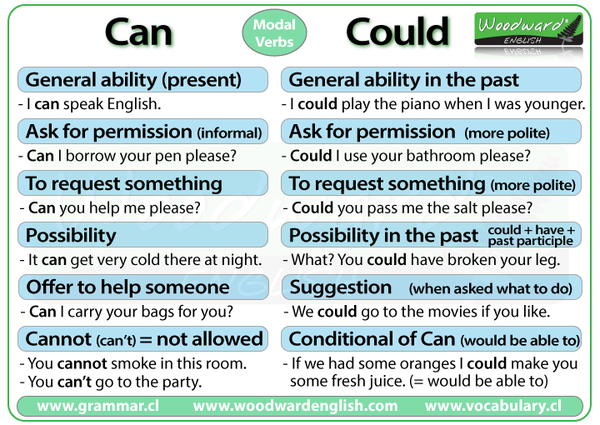
Modals – deduction (present): Grammar test 1 You can't be bored already! You've only been here five minutes. They might be at work or they could be in the car. Repeat this until three or four word remain, and move on.Look at these examples to see how must, might, may, could and can't can be used. The student sat with their back to the board has to guess what it is. Other students then describe it without saying it.
#British council modal verbs exercises should full#
After a brainstorming session leads to a board full of words, sit a student with their back to the board and circle one of the words. I use it to focus students' attention on new lexis. This is a simple vocabulary game with great classroom potential.
Students do grammar exercises to focus on the form of the relevant modal verbs. Students exchange letters and items of interest with schools in other countries. Students write interviews for potential new students to a school. Students design flyers or adverts for their school. Students look at some existing school brochures and decide what kind of student would study there. Students design a fifth school and ask classmates to say if they would like to go there. Students write to their new school to ask for information about courses. If time allows, they could swap forms and complete them. Students design application forms for their new school. Possible variation for adult students: Ask them to choose a school for their children. Bring the class together and ask students where they are going and why. To fully benefit, they should spend in the region of ten minutes discussing and agreeing. A group of students who conveniently find the answer quickly will do so in a matter of minutes, maybe seconds. Allow this to run its course, depending on time available. Having said this, they might assume that you expect them to repeat the modal forms as studied, which you should allow provided it doesn't impede their fluency in any way. It will not be necessary to reproduce the target grammar for this activity, allow students to express themselves naturally. They must consider the pros and cons of all four and have reasons for their choice. Tell the groups that they are to choose a school from the worksheet. To avoid unnecessary repetition, keep feedback brief, but bring the class back together to give them final instructions. When the class has grasped the grammar and you have corrected where necessary, hand out the worksheet below to pairs, threes or fours and ask the students to identify what they think are the school rules for each school. I find appropriate concept questions focus students on the difference. It is likely that you will need to focus on the difference between don't have to and mustn't at this stage. Finally write the other modal forms and ask students to make a sentence for each of the ideas on the board. There may be no need to elicit, students will quickly grasp the idea. When there is enough scope, with what space remains on the board, begin a sentence using one of the target modal forms. Avoid ending up with a mere list of things that students have to do. It is incumbent upon the teacher to make sure that what goes on the board will give them the opportunity to use all of the modal forms appropriately. 

Working as a class, collate some of the ideas and write them on the board.Circulate and make suggestions if necessary. Five minutes should be sufficient, maximum seven. At this stage there is no need for them to write full sentences. Ask them to make a list of factors that would make a perfect school, e.g. Ask students to work in pairs or threes to imagine the perfect school.I often play a game called backs to the board (see below) for five minutes to focus the students. As an introduction, brainstorm vocabulary related to school.The activity is predominantly a speaking activity to be done in pairs, threes or fours, but there is a strong grammar focus which, although not essential to the final speaking activity, should be central to the lesson otherwise. I've also used it many times as the culmination of activities aimed at practising the 'obligation and permission' modals: can, can't, have to, must, don't have to, mustn't.






 0 kommentar(er)
0 kommentar(er)
